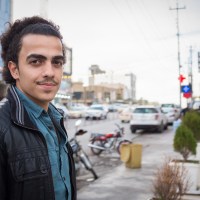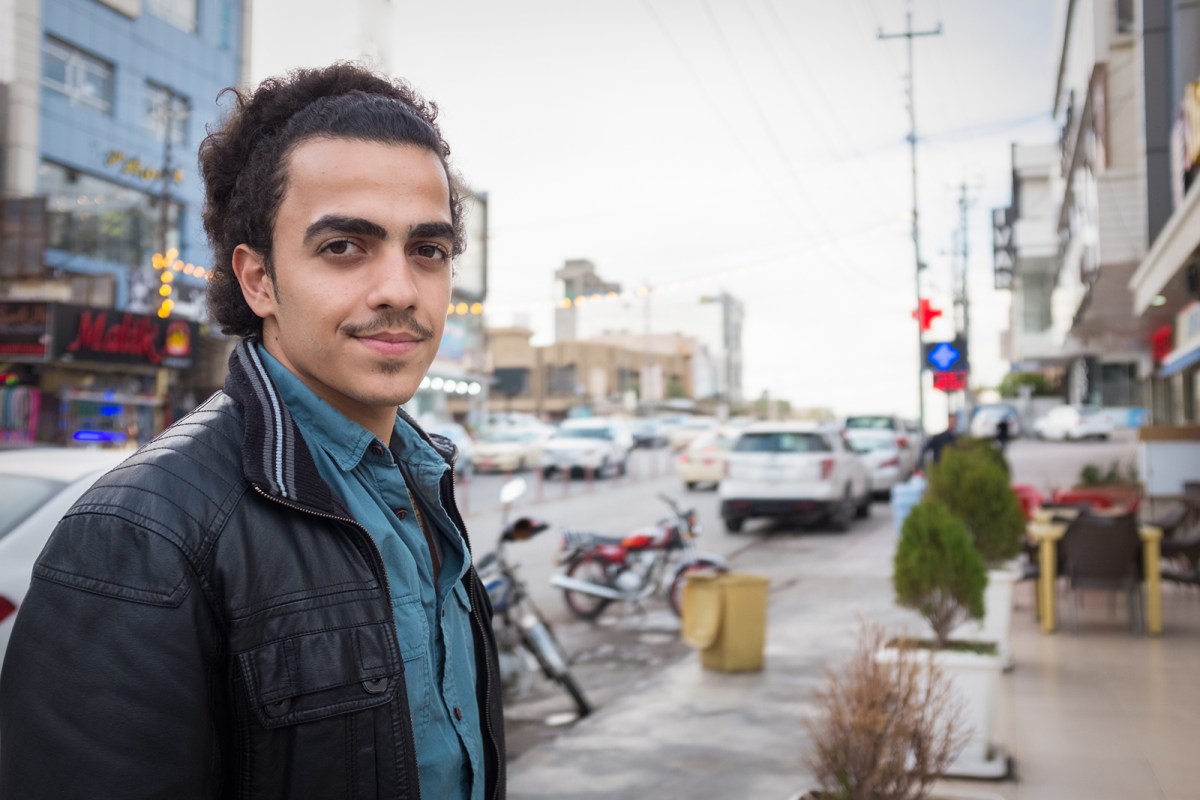There were 20 of them staying in a small two-bedroom home in Lebanon; small kitchen, a single bathroom, and a tiny living room.
Twenty people.
Yasser, his parents, and siblings left Syria two years into the brutal civil war to make an attempt at starting over with relatives in Lebanon.
It would be the first of three attempts. “It was a hard time…” Yasser admitted.
On his third morning in Lebanon, he got up early and headed out find a job. His aunt encouraged him to stay home a little longer, to have a rest—but he couldn’t.
“It was all new for me. New country, new people, new responsibility. A lot of things were new, and I had to be the man. I was only 16 years old, but I had to be the man.”
Over the next few years, the young refugee worked a string of temporary jobs in three different countries to help support his family. In Lebanon, he started working as a butcher. After the butcher shop he worked in a chicken shop, slaughtering and cleaning chickens.
“Chicken is disgusting,” Yasser says now.
Next he worked in a corner store, and later two more butcher shops.
The family traveled to Egypt, where he worked as a day laborer on construction sites, but the pay was so little his family couldn’t live on what the men earned.
They decided to start over again, for a third time, in Iraq. Yasser worked in a factory making concrete blocks, until the winter shut-down, when he was laid off. Then he walked the cold, wet streets selling balloons to motorists. He earned a good wage until the streets filled up with other young men just like him, hawking balloons just as he was.
Next he worked with a company sealing roofs. Then he found himself using his butchering skills again, working in restaurants.
Just thinking about Yasser’s working life over those years is exhausting.
Though most of the jobs he found were temporary, Yasser was never out of work for more than a few days at a time. He is a hard worker. He quickly earned a good reputation everywhere he lived.
Yasser, now 21 years old is somehow both extraordinary and typical. He’s been away from his home in Syria for 5 years.
“Why are they all men? Where are all the women?”
It’s one of the things we heard over and over when the refugee crisis began to spill over Syria and Iraq’s borders and onto Europe’s shores. Many people were struck by the large numbers of young men seen making those journeys in search of refuge.
“Why so many young men?”
It was often said as an indictment—as if young men from the Middle East were shirking their responsibilities, abandoning their families for an easier way out.
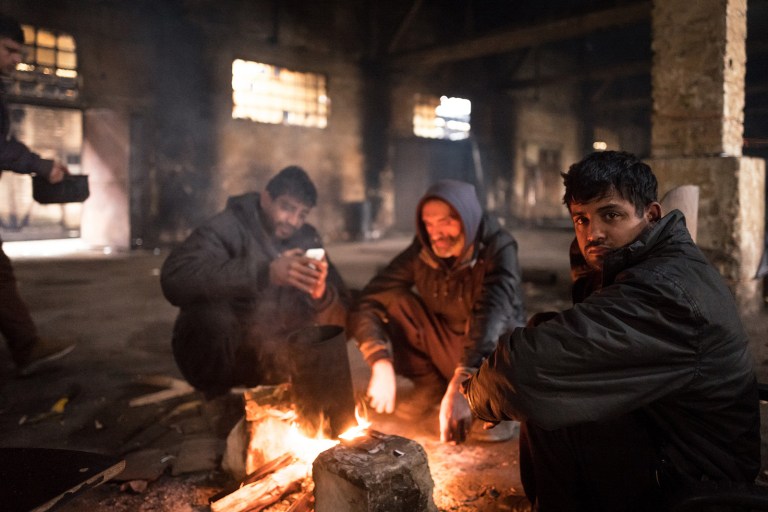
Among those displaced by war in Syria and Iraq, a huge burden is placed on the shoulders of young men to help support their families.
Then there’s the question of staying to fight for one side of the conflict, or leaving to fight for the safety of your family outside the country.
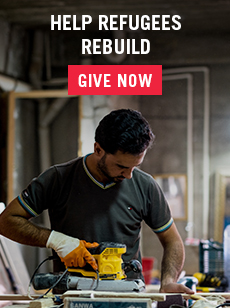
The young men who stay behind in these war zones are expected to fight (and be ready to die) for their country.
Tens of thousands have done just that, leaving behind thousands of young widows and orphans to fend for themselves. Meanwhile, those young men who choose to leave instead of fight are criticized by all sides.
“It’s bad for us if [the government] stays, and bad for us if they go. [Either] way, I can’t go home,” Yasser says. He’s spent a lot of time thinking about this.
“If the government goes, the people who make this revolution will say, ‘We fought. Where have you been when we fought? Where have you been when we were hungry?’”
If the Syrian government wins, and they end this revolution that’s happening, they will have the same questions for me: ‘When we were fighting, where have you been? When we asked you to come and join us, where have you been? You were there, out of your country, having fun.’
I’m fighting here too! I’m fighting for my family. But they won’t understand.”
Other times, it looks like working multiple jobs for much lower pay than local residents earn, because employers know they can exploit refugees with few repercussions. And most often it looks like having to leave high school or college unfinished, in order to “become a man” far sooner than they should have to and taking whatever work they can find.
Yasser left school at 16 years old when he fled Syria with his family. He gave up the hope of someday being a psychologist… but he never gave up his dreams.
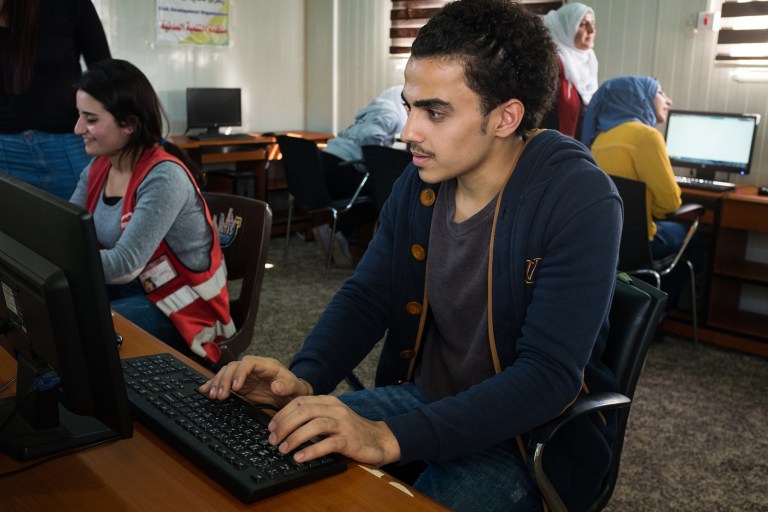
“I want to complete my studies. I want to be the best,” he says. “My dream is to have my own apartment, my own responsibilities.”
I first met Yasser in the Syrian refugee camp that he and his family calls home now. He came to apply for a position at WorkWell, our new tech hub for refugees and vulnerable youth. He applied for a chance to learn tech and coding skills that can help him reach his dreams.
It was immediately obvious that Yasser is smart, hardworking, and motivated to learn as much as he can.
Yasser’s skills earned him a spot at WorkWell. And his character motivates him to make the most of every day. Yasser comes to WorkWell each morning ready to learn.
The world might look at a young Syrian man like Yasser and assume the worst. It’s easy to assume the worst of someone you’ve never sat down with.
We’ve spent time with Yasser. We know he is the kind of person the world needs more of—hardworking, unafraid of responsibility, committed to serving his family, and tenaciously investing in the future.
We are grateful that so many of you have embraced the dream of WorkWell, and have given to make it the kind of space that offer unique opportunities for young refugees.
Even more than that, we’re grateful for your investment in people—in Yasser.

